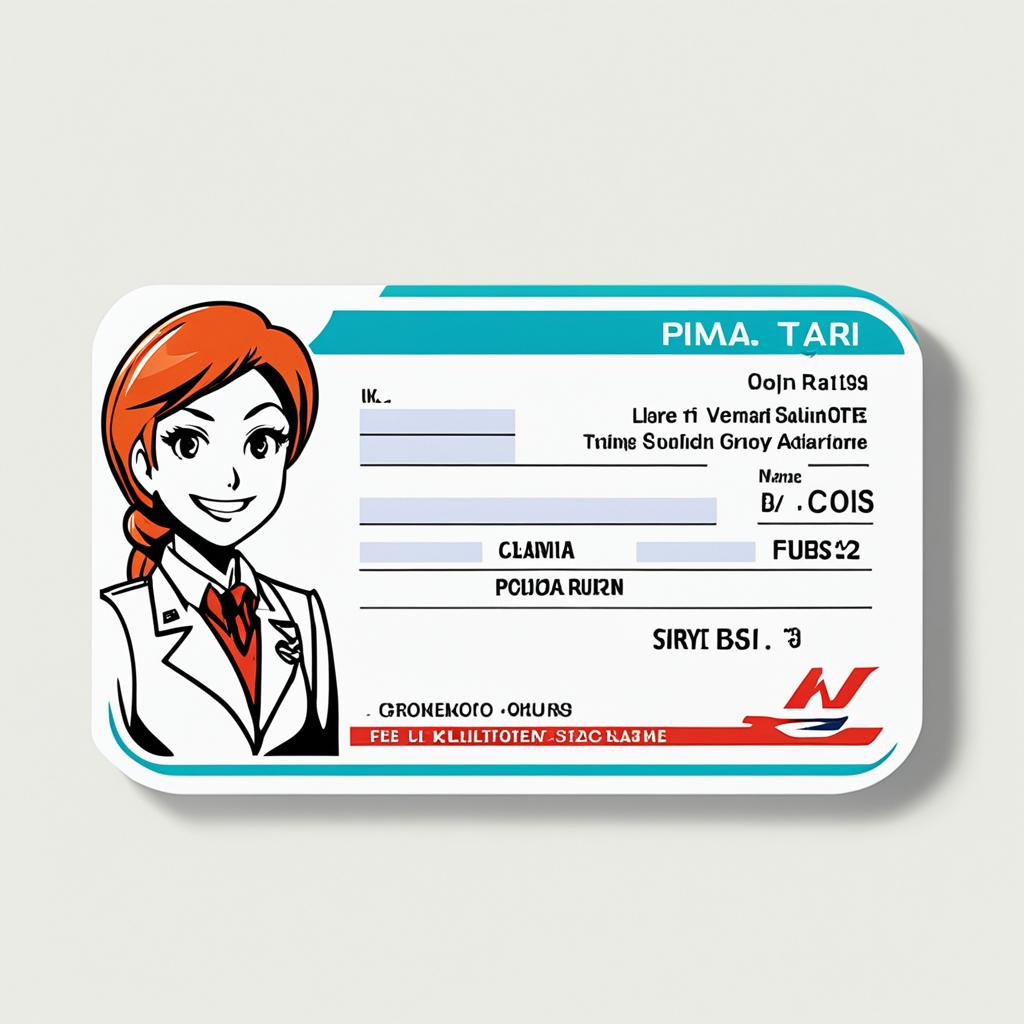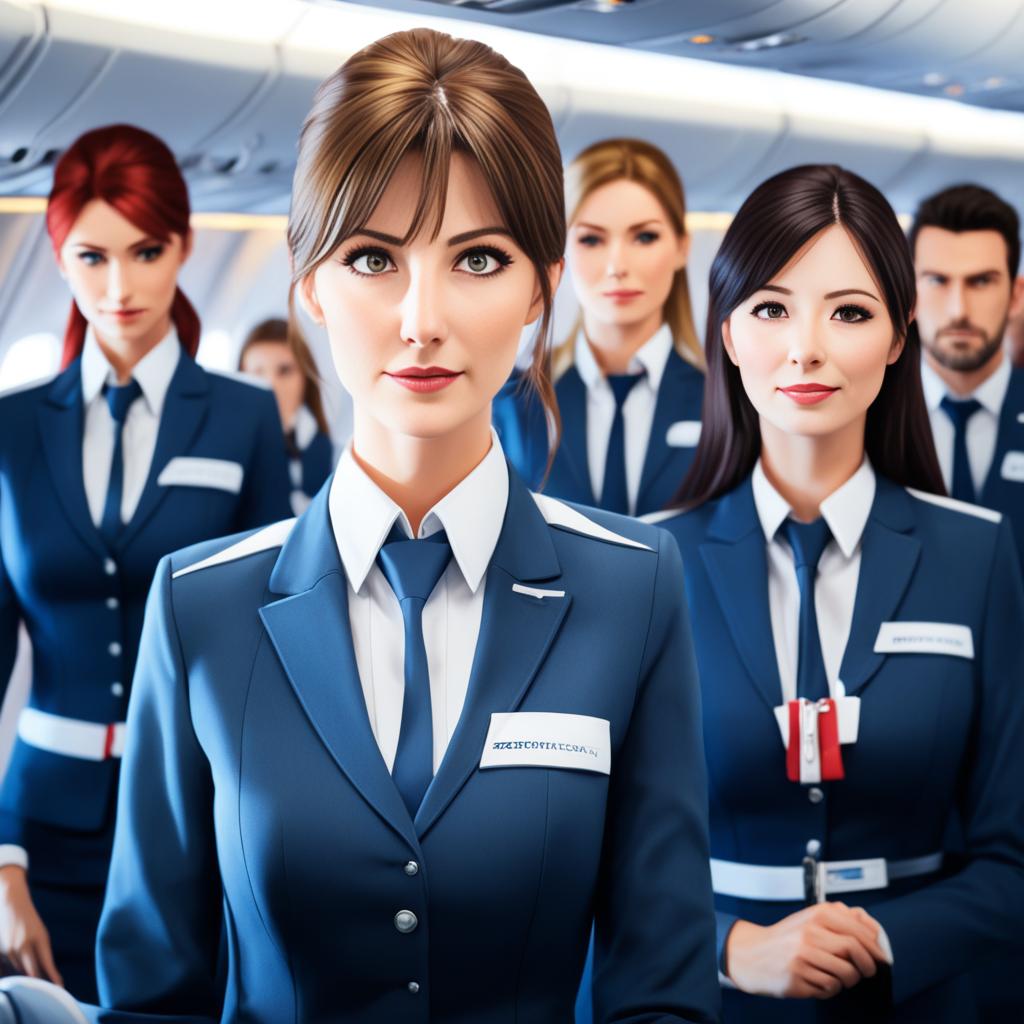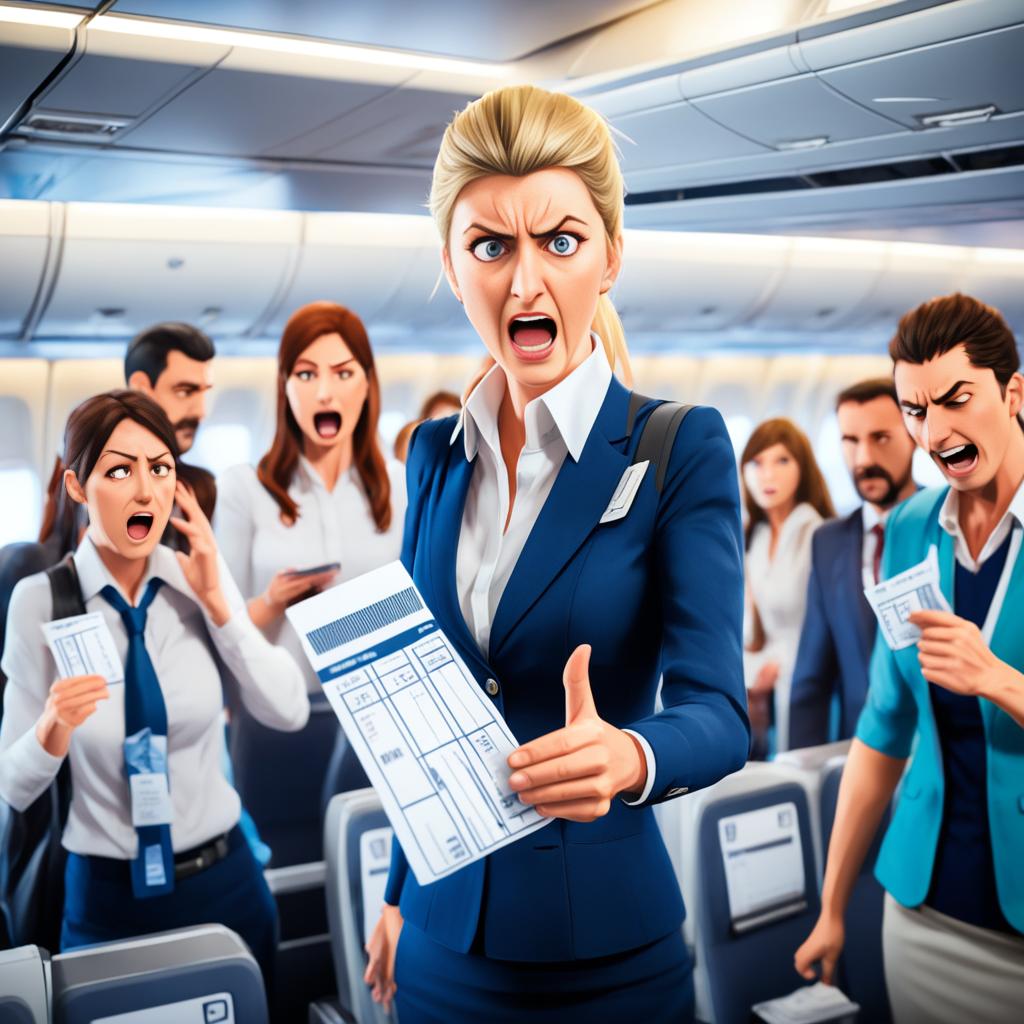Have you ever wondered if flight attendants use fake names for safety or privacy? While we often see them wearing name tags, the question of whether those names are real or not remains a mystery. Join us as we uncover the truth behind the use of names by flight attendants and explore the protocols surrounding their identification.
Flight attendants play a vital role in ensuring the safety and comfort of passengers during air travel. From managing emergencies to providing customer service, they are the unsung heroes of the aviation industry. But when it comes to their names, what lies behind those name tags?
Stay tuned as we delve into the importance of name tags for flight attendants, the regulations surrounding their use, and the instances where flight attendants might choose not to wear them. We will also address the issue of rude or unprofessional behavior by flight attendants and how airlines handle passenger concerns and feedback.
So, do flight attendants use fake names? Let’s find out!
The Importance of Name Tags for Flight Attendants

Name tags serve an important purpose for flight attendants. They not only help passengers address them by their names, but they also serve as a form of identification. In the event of an emergency or security situation, it is crucial for passengers, crew members, and authorities to be able to identify each other.
Flight attendants play a critical role in ensuring the safety of passengers and maintaining order on the aircraft. The ability to quickly identify the crew members can facilitate effective communication and coordination, especially in high-stress situations. Name tags provide a clear visual cue, allowing passengers and crew members to address flight attendants by their names, fostering a sense of personal connection and enhancing the overall customer experience.
Moreover, name tags contribute to the professionalism and accountability of flight attendants. By wearing their names prominently, flight attendants take ownership of their actions and interactions with passengers. It creates a transparent environment where passengers feel confident in approaching flight attendants for assistance or reporting any concerns they may have.
Additionally, name tags can aid in building trust and reassurance among passengers. The ability to address flight attendants by their names can create a more comfortable and friendly atmosphere on board, increasing passenger satisfaction levels. It also allows passengers to easily identify the crew member who provided exceptional service or went above and beyond their duties.
| Benefits of Name Tags for Flight Attendants: |
|---|
| Enhances passenger communication and personalization |
| Aids in emergency situations and security protocols |
| Contributes to professionalism and accountability |
| Builds trust and reassurance among passengers |
Regulations on Name Tags for Flight Attendants
While there may not be specific regulations mandating that flight attendants must wear name tags, most airlines have uniform standards that include the use of name tags. These standards help ensure consistency and professionalism among the cabin crew. Additionally, name tags can be helpful in addressing customer feedback and handling complaints, as passengers can easily identify the specific flight attendant they interacted with.
The use of name tags is not only a part of the overall uniform standards for flight attendants, but it also serves important practical purposes. By prominently displaying their names, flight attendants facilitate communication with passengers and create a more personalized and friendly environment onboard. Passengers can easily refer to flight attendants by their names, adding a personal touch to the service provided.
Moreover, in situations where customers have specific feedback or complaints about their flight experience, being able to identify the flight attendant by name can greatly assist the airline in addressing and resolving the issues. It allows for a more targeted response, ensuring that any concerns are dealt with efficiently and effectively.
While the exact design and placement of name tags may vary among airlines, they typically include the flight attendant’s first name and sometimes their last initial. The name tags are usually worn on the chest area, making them easily visible to passengers. This standardization helps passengers recognize and remember the flight attendants they interact with, fostering better communication and customer service.
Overall, despite the absence of specific regulations, name tags for flight attendants are an essential part of the industry’s uniform standards. They contribute to the professionalism, accountability, and personalization of the cabin crew, making the flying experience safer and more enjoyable for passengers.
Instances of Flight Attendants Not Wearing Name Tags

While name tags are typically required for flight attendants, there are instances where they may not be worn. Several reasons contribute to flight attendants not wearing name tags, such as:
- Forgetting or losing the name tag.
- Discomfort or safety concerns associated with wearing the name tag.
- Personal preference.
However, not wearing a name tag can have consequences, as it may make it difficult for passengers to identify specific flight attendants, especially when there is a need for feedback or lodging a complaint. In such situations, it is essential for airlines to have alternative methods for passengers to provide their feedback or address any concerns they may have.
| Reasons for Not Wearing Name Tags | Consequences |
|---|---|
| Forgetting or losing the name tag | Difficult for passengers to identify specific flight attendants |
| Discomfort or safety concerns | Challenges in providing feedback or lodging complaints |
| Personal preference | Difficulty for passengers to address their concerns to the relevant flight attendant |
It is important for both flight attendants and airlines to recognize the significance of wearing name tags as they contribute to the overall passenger experience and cabin crew accountability. While alternatives may be considered, such as unique identification codes or other identifying methods, ensuring clear and visible identification of flight attendants remains crucial.
Surfacing the Issue of Rude or Unprofessional Flight Attendants

Rude or unprofessional behavior by flight attendants is a matter of concern for both passengers and airlines. When faced with such improper conduct, it is important for passengers to take action and report the incident to the airline. While identifying the flight attendant by name may not always be possible, there are other details that can aid in addressing the issue.
If you encounter a flight attendant displaying rude or unprofessional behavior, it is essential to notify the airline and provide them with as much information as possible. Although you may not know the name of the specific individual, be sure to provide the flight number, date of the incident, and a detailed physical description of the flight attendant involved. This information will assist the airline in investigating the matter and taking appropriate action to address the situation.
Passenger complaints play a vital role in holding flight attendants accountable for their actions and ensuring a professional and respectful environment onboard. By reporting instances of rude or unprofessional behavior, you contribute to the improvement of airline services and the overall experience for all passengers.
Remember, your feedback matters, and your voice can make a difference.
Airlines Reporting Mechanisms
| Airline | Reporting Mechanism |
|---|---|
| Delta Air Lines | Online complaint form |
| United Airlines | Customer Care form |
| American Airlines | Customer Relations department |
| Southwest Airlines | Contact Customer Support |
Ensuring Passenger Safety and Comfort
Flight attendants play a vital role in ensuring the safety and comfort of passengers during their journey. They are responsible for a range of important tasks that contribute to a smooth and enjoyable travel experience. From taking care of emergency situations to providing excellent customer service, flight attendants are trained professionals who prioritize passenger well-being.
When it comes to passenger safety, flight attendants are extensively trained in emergency procedures. They are equipped with the knowledge and skills to handle various scenarios, such as evacuations, medical emergencies, and turbulence. Flight attendants undergo rigorous training to ensure they can effectively respond to any critical situation that may arise during a flight, keeping passengers safe and secure throughout the journey.
In addition to safety procedures, flight attendants also excel in providing exceptional customer service. They strive to create a positive atmosphere onboard by offering assistance, answering questions, and addressing passenger needs. Whether it’s helping with luggage, serving meals, or accommodating special requests, flight attendants go above and beyond to ensure a pleasant and comfortable travel experience for everyone on board.
Flight attendants are also at the forefront of maintaining a calm and secure environment on the aircraft. They monitor passenger behavior, manage any conflicts that may arise, and ensure compliance with safety regulations. By proactively addressing any issues and fostering a peaceful atmosphere, flight attendants contribute to a pleasant and stress-free journey for passengers.
Despite isolated instances of misconduct by a few individuals, it is important to recognize the dedication and professionalism exhibited by the majority of flight attendants. They take their responsibilities seriously and strive to deliver exceptional service while prioritizing passenger safety and comfort.
Next, let’s take a closer look at how airlines address passenger concerns and feedback, ensuring that the high standards of customer service and safety are consistently maintained.
Addressing Passenger Concerns and Feedback
Airlines understand the importance of addressing passenger concerns and feedback to provide exceptional customer service. They have established robust mechanisms to ensure that every complaint or feedback is thoroughly reviewed and investigated. When passengers experience any issues or have suggestions, their input helps airlines identify areas for improvement and implement corrective measures.
Upon receiving a complaint or feedback, airlines take appropriate actions to address the specific concern. This may involve reaching out to the passengers directly to gather more information and understand their perspective. Airlines strive to resolve issues promptly and efficiently to ensure passenger satisfaction and comfort.
The airline’s response to passenger concerns is a reflection of their commitment to delivering exceptional customer service. By actively engaging with passengers, addressing their concerns, and implementing necessary changes, airlines demonstrate their dedication to providing a positive travel experience. This ongoing feedback loop helps airlines continuously enhance their services, ensuring that passenger needs are met and surpassed.
Passengers play an integral role in this process by providing their feedback. Whether it is through online surveys, direct communication, or other feedback mechanisms, airlines actively encourage passengers to voice their concerns and suggestions. This open dialogue enables airlines to listen, learn, and make meaningful improvements to their operations, resulting in an enhanced flying experience.
FAQ
Q: Do flight attendants use fake names?
A: Flight attendants typically use their real names on their name tags. However, there may be instances where flight attendants use pseudonyms or nicknames for personal or safety reasons.
Q: What is the importance of name tags for flight attendants?
A: Name tags serve as a form of identification for flight attendants. They help passengers address them by their names and contribute to the overall professionalism and accountability of the cabin crew.
Q: Are there regulations on name tags for flight attendants?
A: While there may not be specific regulations mandating the use of name tags, most airlines have uniform standards that include the use of name tags to ensure consistency and professionalism among the cabin crew.
Q: Are flight attendants always required to wear name tags?
A: Flight attendants are typically required to wear name tags, but there may be instances where they are not worn due to reasons such as forgetting or losing the name tag, discomfort or safety concerns, or personal preference.
Q: What should I do if a flight attendant displays rude or unprofessional behavior?
A: If you encounter a flight attendant displaying rude or unprofessional behavior, it is important to report the incident to the airline. While you may not have the flight attendant’s name, providing details such as the flight number, date, and physical description can aid in addressing the issue.
Q: What responsibilities do flight attendants have besides wearing name tags?
A: Flight attendants have crucial responsibilities in ensuring passenger safety and comfort. They are trained to handle emergency situations, provide customer service, and maintain a calm and secure environment onboard.
Q: How do airlines address passenger concerns and feedback?
A: Airlines have various mechanisms in place to address passenger concerns and feedback. They review and investigate complaints, take appropriate actions, and implement corrective measures when necessary. Your feedback is important in helping airlines improve their services and ensure passenger satisfaction.
